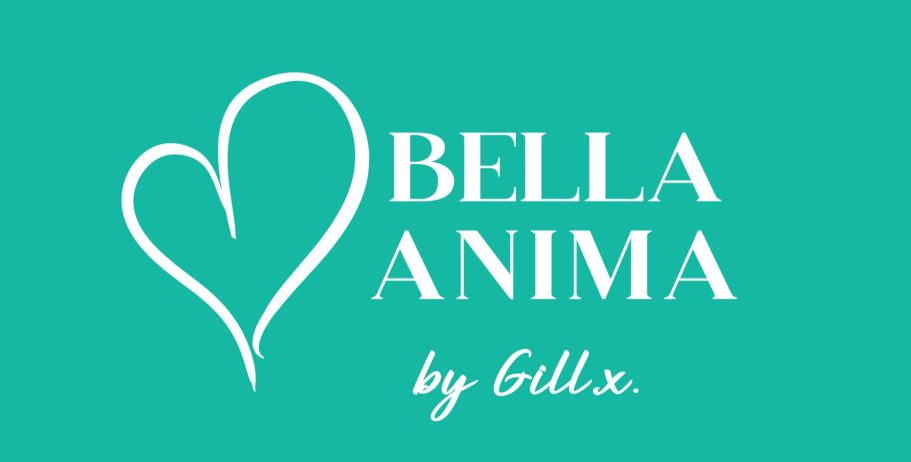
Tips Dealing with Past Trauma
Dealing with past trauma can be a challenging and ongoing process according to Gill. Healing from past trauma is a deeply personal process, and what works for one person may not work for another. It's important to find the strategies and supports that resonate with you and to take things at your own pace.
Here she shares some tips to help you navigate your journey:
You may benefit from seeking help from a professional coach, therapist or counsellor who can provide a safe space to explore and process your trauma. But be mindful that they may suggest or refer you to seek help from a fully licensed mental health professional.
Talk therapy along with NLP should help, as well as other therapies such as Cognitive Behavioural Therapy (CBT), Eye Movement Desensitisation and Reprocessing (EMDR), and Trauma-Focused Cognitive Behavioural Therapy (TF-CBT) can also be particularly effective.
Support Groups:
- Joining a support group can connect you with others who have experienced similar traumas, providing mutual support and understanding.
Practice Self-Care:
- Physical Health: Maintain a healthy lifestyle with regular exercise, a balanced diet, and sufficient sleep. Physical well-being can significantly impact your mental health.
Relaxation Techniques:
- Engage in relaxation practices such as deep breathing exercises, meditation, yoga, or mindfulness to help manage stress and anxiety.
Develop Healthy Coping Mechanisms:
- Journaling - Writing about your thoughts and feelings can help you process your emotions and gain insights into your trauma.
- Creative Outlets: - Engaging in creative activities such as art, music, or writing can be therapeutic and provide a way to express yourself.
Establish a Support System:
- Trusted Friends and Family:
- Surround yourself with supportive and understanding people who can offer emotional support and encouragement.
Open Communication:
- Communicate your needs and boundaries with those around you to foster a supportive environment.
Set Boundaries:
- Protect Your Space:
- Set boundaries with people or situations that trigger or exacerbate your trauma. It's important to prioritise your mental health and well-being.
Self-Compassion:
- Be kind and patient with yourself as you navigate your healing journey. It's okay to take time for self-care and to set limits on what you can handle.
Educate Yourself:
- Learn About Trauma:
- The subculture mind - Understanding the effects of trauma on the brain and body can help you make sense of your experiences and reactions.
- Read Books and Articles:
- There are many resources available that can provide insights and strategies for dealing with trauma.
- Here Gill recommends some best-selling books on the subject that have received widespread acclaim for their insightful and effective approaches:
1
The Body Keeps the Score: Brain, Mind, and Body in the Healing of Trauma
By Bessel van der Kolk, M.D.
This book explores how trauma affects the brain and body and offers various treatments, including neurofeedback, mindfulness, and yoga, to help individuals heal.
2
Trauma and Recovery: The Aftermath of Violence from Domestic Abuse to Political Terror
By Judith Herman, M.D.
A classic in the field of trauma studies, this book provides a comprehensive understanding of the impact of trauma and the stages of recovery, emphasising the importance of safety, remembrance, and reconnection.
3
Waking the Tiger:
Healing Trauma
By Peter A. Levine, Ph.D.
Peter Levine presents his Somatic Experiencing approach to trauma, which focuses on releasing the energy trapped in the body due to traumatic experiences.
4
The Complex PTSD Workbook:
A Mind-Body Approach to Regaining Emotional Control and Becoming Whole
By Arielle Schwartz, Ph.D.
This workbook offers practical exercises and tools to help individuals with Complex PTSD (C-PTSD) manage symptoms and promote healing through a mind-body approach.
5
It Didn't Start with You: How Inherited Family Trauma Shapes Who We Are and How to End the Cycle
By Mark Wolynn
Mark Wolynn delves into the concept of inherited family trauma and provides techniques to break the cycle and heal from traumas passed down through generations.
6
The Deepest Well: Healing the Long-Term Effects of Childhood Adversity
By Nadine Burke Harris, M.D.
Dr. Nadine Burke Harris explores the long-term effects of Adverse Childhood Experiences (ACEs) on health and provides insights into interventions that can help mitigate these effects.
7
Healing Trauma:
A Pioneering Program for Restoring the Wisdom of Your Body
By Peter A. Levine, Ph.D.
This book offers a practical guide to healing trauma using body-based techniques to release traumatic energy and restore the body's natural healing capabilities.
8
When the Body Says No: Exploring the Stress-Disease Connection
By Gabor Maté, M.D.
Gabor Maté examines the link between chronic stress and disease, emphasising the importance of understanding and addressing emotional and psychological factors to promote healing.
9
Rising Strong:
How the Ability to Reset Transforms the Way We Live, Love, Parent, and Lead
By Brené Brown, Ph.D.
Brené Brown explores the process of rising after a fall, focusing on the importance of vulnerability, resilience, and courage in overcoming trauma and adversity.
10
The Body Remembers: The Psychophysiology of Trauma and Trauma Treatment
By Babette Rothschild
This book provides an in-depth look at the physiological effects of trauma and offers strategies for trauma treatment that address both the mind and body.
These books offer a range of perspectives and approaches to understanding and healing from trauma, making them valuable resources for anyone seeking to recover from past traumatic experiences.
Practice Mindfulness and Grounding Techniques:
- Mindfulness Practices:
- Engage in mindfulness meditation to stay present and reduce anxiety.
- Mindfulness helps you become more aware of your thoughts and feelings without judgment.
Grounding Techniques:
- Use grounding exercises to bring yourself back to the present moment during times of distress. Techniques like focusing on your breathing, touching a familiar object, or describing your surroundings can be helpful.
Avoid Self-Destructive Behaviours:
Stay Away from Substance Abuse:
- Avoid using alcohol, drugs, or other harmful behaviours as a way to cope with trauma. These can exacerbate the problem and impede your healing.
Healthy Coping Strategies:
- Replace harmful coping mechanisms with healthy ones, such as exercise, hobbies, or talking to a friend.
Be Patient with the Healing Process:
Acknowledge Progress:
- Recognise and celebrate your progress, no matter how small. Healing from trauma is a journey, and every step forward is significant.
Accept Setbacks:
- Understand that setbacks are a natural part of the healing process. Be compassionate with yourself during difficult times.
Consider Alternative Therapies:
Holistic Approaches:
- Explore holistic therapies such as acupuncture, massage therapy, or aromatherapy, which can complement traditional treatments.
- Animal-Assisted Therapy: Interacting with animals can provide comfort and reduce anxiety for some individuals.
In summary each and every person is different, and Gill suggests trying different strategies until you find one (or a combination) that’s right for you. Review her tips and dive in, hopefully you’ll find something that resonates with you and don’t overwhelm yourself, take things at your own pace.
We need your consent to load the translations
We use a third-party service to translate the website content that may collect data about your activity. Please review the details in the privacy policy and accept the service to view the translations.

